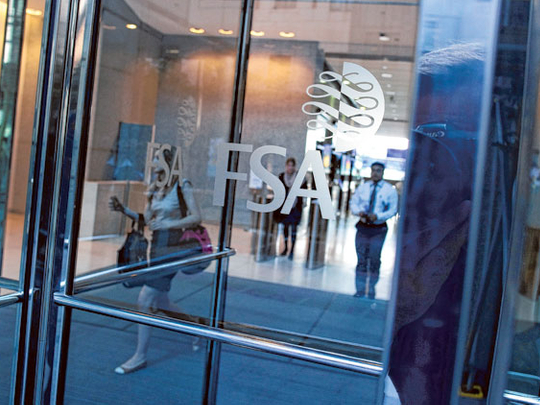
London: US investigators conducting a criminal probe of interest-rate manipulation have asked their British counterparts for permission to interview London traders, two people familiar with the investigation said.
The US Department of Justice filed a request with the UK Home Office for access to dozens of bankers in conjunction with British prosecutors that are also investigating the rate rigging, said one of the people, who asked not to be identified because the proceedings haven’t been made public.
The move may indicate the US wants to pursue criminal charges against individuals in the UK that could lead to extradition, said Bradley Simon, a former federal prosecutor in Brooklyn, New York. It “won’t deter them in the least” that UK prosecutors are also involved, he said.
“They don’t stay within US borders,” Simon said in a phone interview. “They don’t hesitate to charge non-US citizens abroad and I know that this case is being investigated within the antitrust division of the Justice Department, which is known to take their cases very seriously.”
Regulators from Tokyo to London to New York are probing how derivatives traders and bankers who submitted interest-rate data colluded to rig benchmarks including the London Interbank Offered Rate. Royal Bank of Scotland Group Plc, UBS AG and Deutsche Bank AG are among lenders awaiting information about their fate. The Justice Department’s criminal probe is running in parallel with civil investigations being conducted by its fraud division, the US Commodity Futures Trading Commission and the UK Financial Services Authority.
Fines, Resignations
The UK Serious Fraud Office opened its criminal case in July at the request of British politicians after Barclays Plc was fined a record 290 million pounds ($470 million) for rate manipulation. The agency had previously declined to get involved in the case, according to the FSA. Barclays Chief Executive Officer Robert Diamond and Chairman Marcus Agius resigned following the fine.
A Home Office spokesman declined to comment on any cooperation request. Michael Passman, a US Justice Department spokesman, said yesterday said the department would have no comment on the matter.
Extradition is a concern for suspects in the UK after three British bankers who faced Enron Corp-related fraud charges lost a three-year court battle and were sent to the US in 2006 to face trial. The men, who worked for RBS’s Greenwich NatWest unit, had argued that as British citizens accused of defrauding the London-based bank, any prosecution against them should have been in England.
It was among cases that prompted UK lawmakers to say a 2003 extradition treaty with the US was unfair and urged Prime Minister David Cameron to renegotiate it.
“The UK courts have basically turned over for extradition just about anyone the US seeks,” Simon said.
Simon represented British attorney Jeffrey Tesler, who was extradited to the US last year to face bribery charges. Tesler fought the extradition, saying because the case had strong links to the UK and British prosecutors were carrying out their own investigation, he shouldn’t be sent across the Atlantic.
If the SFO files “almost identical” charges, then the courts may deter extradition, Simon said. If the US files antitrust charges and the SFO charges traders for fraud or false accounting, an extradition may still happen, he said.
Kareem Serageldin, the former global head of Credit Suisse Group AG’s CDO business charged in the US for a bonus-boosting fraud tied to a $5.35 billion trading book, said at a hearing yesterday in London that he won’t consent to extradition until he reaches a plea deal. Serageldin’s lawyer said his client’s arrest was a result of “miscommunication.”
The US request came under a mutual legal assistance treaty, or MLAT, with the UK Central Authority, which is part of the Home Office, said one of the people. The Justice Department wants the interviews to prepare their case against former traders at rate-setting banks, which is currently based on evidence from cooperating witnesses, one of the people said.
The SFO wants to handle the prosecution of any British citizens in the UK and will resist extradition efforts by US authorities, said one of the people. The agency is stalling while it seeks to catch up to the Justice Department’s probe, which began around 2009, the person said.
David Jones, an SFO spokesman, declined to comment.
The Justice Department’s request may only relate to charges it intends to bring in the US against people not under investigation by the SFO, said Tim Harris, a London-based criminal defence lawyer at the firm Bark & Co.
“It’s more likely that is part of the DOJ’s evidence gathering process for charges they are looking to bring in the US against people not subject to the SFO probe,” Harris said. “The SFO have suspects in mind for criminal conduct committed in the UK The SFO would not allow, at this stage, UK suspects to be extradited to the US to face similar charges.”












